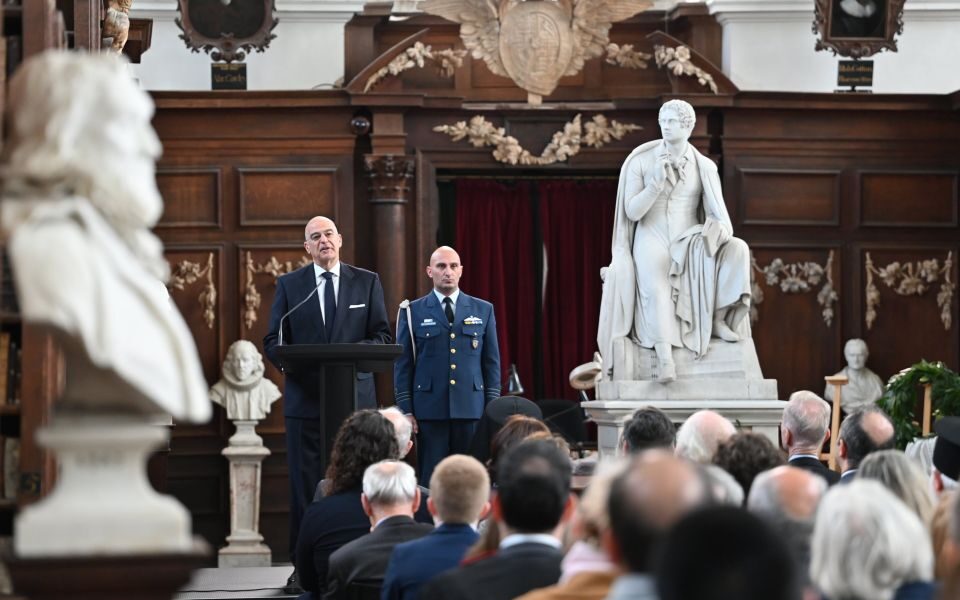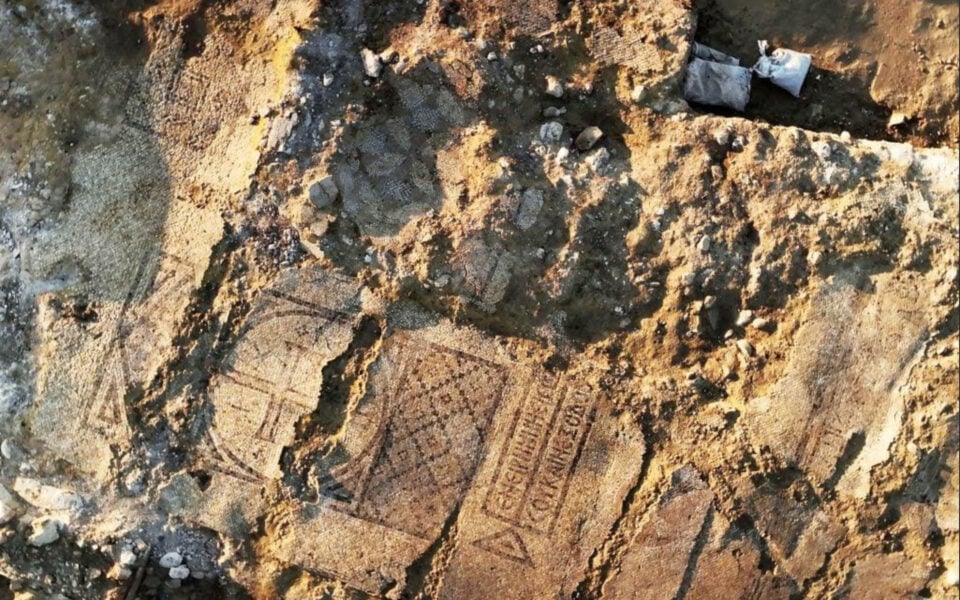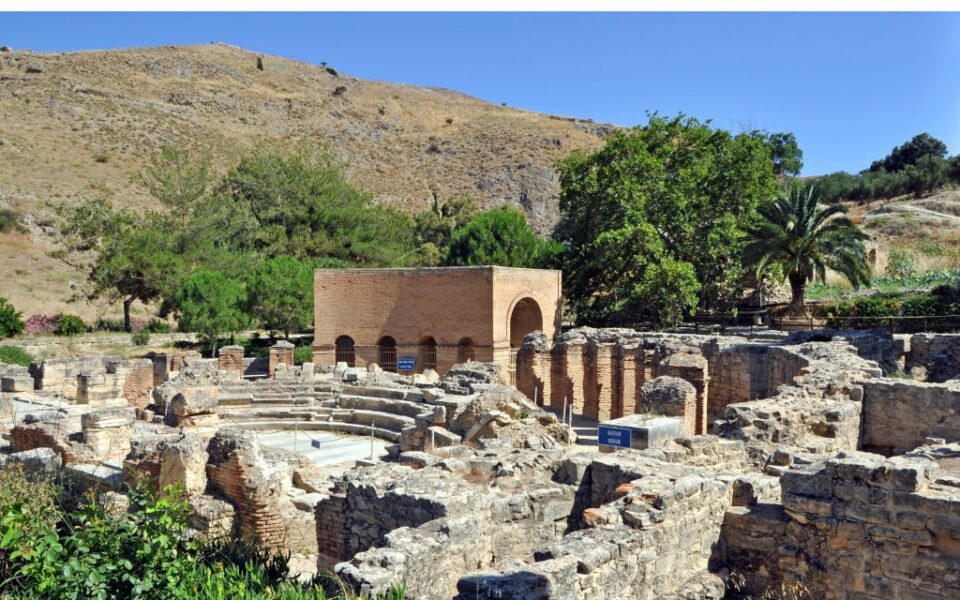Dendias attends event marking bicentenary of Byron’s death


Greek Defence Minister Nikos Dendias has attended the opening of a two-day festival at Trinity College Cambridge in England to mark with the bicentenary of Lord Byron’s death on 19 April 1824, in Messolongi, Greece.
Byron was a student at Cambridge’s Trinity College and is one of its most celebrated alumni. Aside from his status as a world-renowned poet at the time, he was also perhaps the most famous philhellene to travel to Greece and ultimately give his life for Greek independence in 1824, 200 years ago.
In his address, Dendias spoke about Lord Byron’s special relationship with Greece and his contribution to the struggle for its independence.
“For us Greeks, however, Lord Byron means so much. He was the most famous philhellene and a professor of history,” he said.
The minister concluded his greeting by reading verses from Byron’s poem “The Isles of Greece,” which he said “speaks to the Greek soul.”
The ceremony was attended by the Deputy Culture Minister Christos Dimas and His Eminence Archbishop Nikitas of Thyateira and Great Britain, among others.
After the ceremony, Dendias laid a wreath at the statue to Bryon.
Meanwhile, a letter has surfaced in Trinity College’s Wren library describing the contents of Byron’s lost memoirs, according to the BBC.
It was written by Elizabeth Palgrave in 1823 after a visit to a publishing house.
The poet had given memoirs to a friend in 1819 with instructions to publish them after his death, but destroyed them when he died in 1824.
Palgrave said she was shocked by what she had read in the poet’s memoirs.
“Ld (sic) Byron evidently set his mind to evil – he takes delight in recording his own wickedness, & in the most perverted of all feelings – that of exposing & degrading his wife.”
Source: ekathimerini.com




